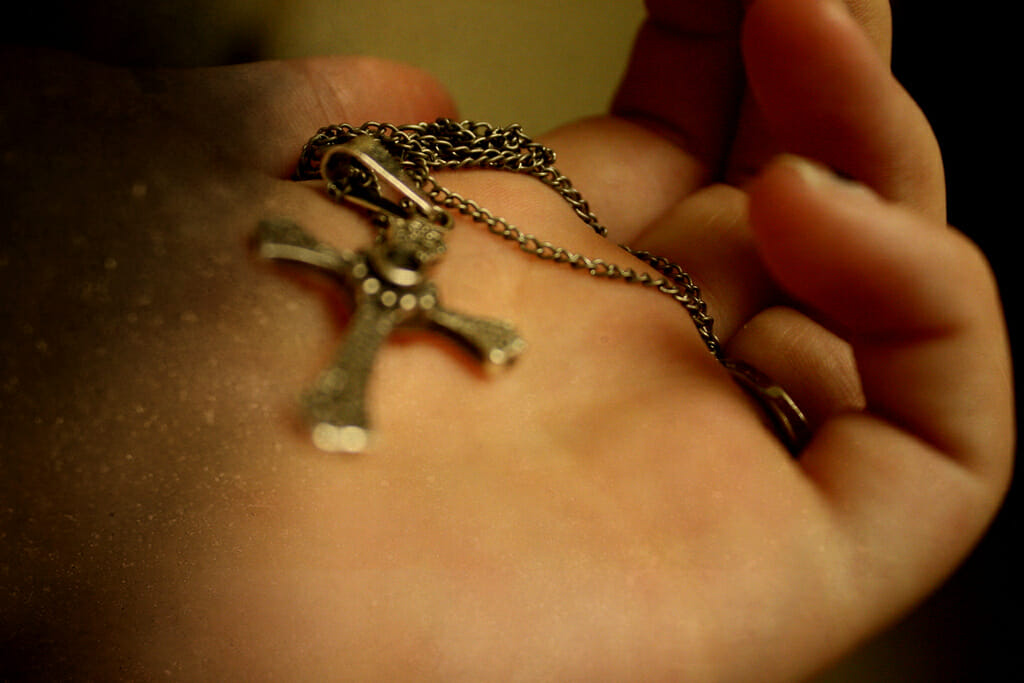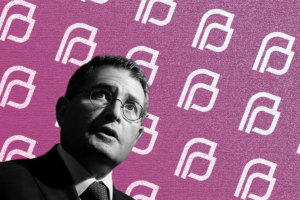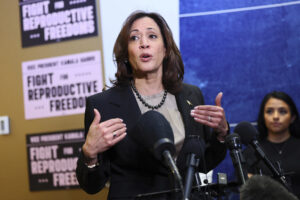Young Christians More Progressive, Diverse Than Their Parents
Issues such as climate change, family separations and same-sex marriage are fueling a big generational shift in the American evangelical community. ashley rose / CC BY-NC-ND 2.0
ashley rose / CC BY-NC-ND 2.0
Many millennial Christians are seeing political issues in a markedly different light than their parents’ generation, Eliza Griswold writes in a recent piece for The New Yorker. While older evangelicals have fought to put bring down Roe v. Wade, for example, their younger counterparts, concerned with “the sanctity of life both in the womb and after,” are drawn to universal health care and, while still opposed to abortion, are seeking to limit the number of abortions carried out rather than ban the procedure all together.
And it’s not just abortion they differ on. Young Christians are increasingly opening up to ideas of sexual fluidity, and a recent survey by the Human Rights Campaign found that a majority of them are in favor of marriage equality.
While 53% of young, white evangelicals support marriage equality, only a quarter of white, older evangelicals do so.
Such a generational divide existed regardless of ethnicity. Seventy-five percent of young Hispanic Americans and 69% of young black Americans support same-sex marriage, compared to Hispanic seniors at 38% and African-American seniors at 40%.
Asian-Pacific Islander Americans were the only group to have a majority in both generations, with both young and old supporting equal marriage at 84% and 54%, respectively.
HRC found that 45% of young, white evangelical Protestants would reject policies that allow the right to refuse service of LGBTQ people for religious reasons and 54% support LGBTQ non-discrimination protections.
Two-thirds of black Americans and six in ten Hispanic, Asian-Pacific Islander and white Americans disapprove of service refusals due to sexuality or gender identity.
On other progressive issues, such as police brutality and family separations at the U.S. border with Mexico, millennial Christians have found appeal in the humanitarian approach that can be learned from biblical texts about Jesus’ own actions.
Climate change is also a biggie. The environmental phenomenon may have been “often the butt of a joke” in the communities where they grew up, but the millennial Christians who formed the group Young Evangelicals for Climate Change Action (YECA) see the link between their religious and environmental responsibilities.
Y.E.C.A., an organization specifically focusing on millennials, posits that evangelicals aren’t a monolithic bloc that doesn’t believe in climate change — they are more polychromatic than data suggests.
Y.E.C.A. doesn’t have one theological party line about how environmental responsibility and faith work hand in hand. According to Kaleb Nyquist, a member of Y.E.C.A.’s steering committee, the organization is pulling from the Bible. Nyquist … explained that “as an organization, [Y.E.C.A. is] going to take anyone who, as a Christian … finds a reason to be concerned about climate change through the lens of Scripture.”
Traditional proofs used to illustrate that the Bible advocates for environmental care span the Old and New Testaments. The most common and earliest trope is steeped within Genesis’ creation story. Genesis proclaims God as the creator of the world: “In the beginning, God created the heavens and the earth,” and declare God’s creation good: “God saw all that he had made, and it was very good.” These verses and others deem the earth, vegetation, and everything inhabiting it as good and godly.
The creation story is one of many supporting texts that could be used to say environmental responsibility and faith go hand.
Griswold found that one of the key factors in the generational shift in the American evangelical community is that Christian youths are less keen on subscribing to what many see as passé political conservatism, but are hanging on to theologically conservative ideas.
There are a number of other factors involved, too, including growing diversity and globalization, Griswold writes.
During the past decade, evangelicalism has grown more diverse: as the number of white believers has declined, the Latino evangelical population has increased dramatically. … From a distance, evangelicalism can appear culturally monolithic—nearly eighty per cent of white evangelicals support President Trump, according to the Public Religion Research Institute—but many young evangelicals are more diverse, less nationalistic, and more heterodox in their views than older generations. Believing that being a Christian involves recognizing the sanctity of all human beings, they support Black Lives Matter and immigration reform. …
For young believers … the ubiquity of Facebook, Twitter, Instagram, and other social networks in their lives, among other factors, have made it more difficult to live in the kind of theological, cultural, and political isolation that previous generations once did. And, as their secular peers embrace more fluid identities in regard to sexuality and race, young evangelicals are also beginning to see such positions in shades of gray rather than in black and white. There are other factors, too, related to globalization: the exponential growth of fellow-believers in the Global South; the growing diversity of evangelicals in the U.S., driven in part by the influx of immigrants who arrive in American churches with their own dynamic faith. The result is that younger evangelicals are speaking out on issues like family separation at the border, climate change, police brutality, and immigration reform—causes not typically associated with the evangelical movement. In the continuing moral outrage at the border, which includes nearly six hundred children still displaced in New York City alone, many see the faces of themselves and their families.
As The New Yorker piece makes clear, however, questions remain about whether the generational divergence in political views will be reflected at the polls, given that, as the Rev. Samuel Rodriguez, 48, sees it, evangelicals have been able to influence President Trump on a number of issues since he took office.
Your support is crucial...As we navigate an uncertain 2025, with a new administration questioning press freedoms, the risks are clear: our ability to report freely is under threat.
Your tax-deductible donation enables us to dig deeper, delivering fearless investigative reporting and analysis that exposes the reality beneath the headlines — without compromise.
Now is the time to take action. Stand with our courageous journalists. Donate today to protect a free press, uphold democracy and uncover the stories that need to be told.






You need to be a supporter to comment.
There are currently no responses to this article.
Be the first to respond.